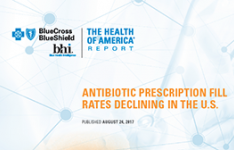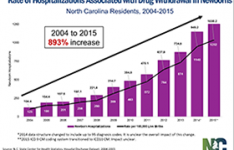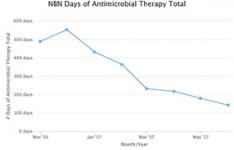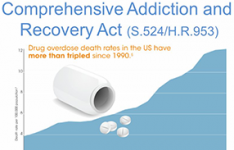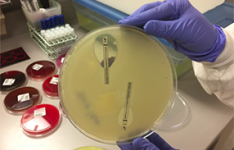News
Here's the recent news from PQCNC.
Due to overwhelming demand we have added additional capacity for the upcoming OBH Kickoff meeting on Wednesday, September 13th at the McKimmon Center in Raleigh. Join us! - register here Read more...
BCBS analyzed 172 million national insurance claims for antibiotic prescriptions in 2010 and 2016, and found that antibiotic prescribing has declined by 9%, with larger increases observed among children, and considerable geographic variability. Specifically in North Carolina, there has been a 24% decrease in overall antibiotic prescriptions and 35% decrease in pediatric antibiotic prescriptions. Read more...
Plan of Safe Care/CAPTA Q & A for Hospitals and Birth CentersMonthly conference calls are being scheduled with the purpose to discuss and answer questions related to the implementation of CAPTA/Plan of Safe Care as it relates to the role of healthcare providers who work with newborns.Hosts: Dr. Kelly Kimple, Section Chief, Division of Public Health, Women’s and Children’s Health Section, NC DHHS Read more...
As ASNS PQITs work to decrease antibiotic use in newborn and NICU infants, many different measures are being implemented to aid in accomplishing this goal. Some teams began by defining at-risk criteria to determine a need for antibiotic administration while other teams implemented an antibiotic hard stop at 36 or 48 hours to automatically discontinue any antibiotics that had been ordered allowing for reassess Read more...
"Opioid abusers are more likely to live in the rural south. 22 out of the top 25 cities for opiod abuse rate are primarily rural and located in southern states. Opioid abuse rates range from 11.6% of individuals in Wilmington, NC to 7.5% of individuals in Fort Smith AR who received an opioid prescription." Read more here Read more...
Interested in learning about Resilience tools?Enroll in the W.I.S.E.R Study (“Web-based Implementation of the Science for Enhancing Resilience”)Who: Healthcare workers 18 and older are eligibleWhat: • WISER is packages evidence-based resilience tools for busy healthcare workers. It is an interactive, text-message based intervention that lasts 2 months. Read more...
Dr. Kelly Kimple, the NC Acting State Health Director, is inviting you to meet on May 31st from 12:30-1:30 pm, by webinar, to outline the proposed role of hospitals in supporting North Carolina's implementation of recent federal Child Abuse Prevention and Treatment Act (CAPTA) amendment under the Comprehensive Addiction and Recovery Act (CARA) legislation. Read more...


